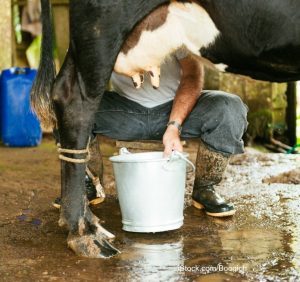Raw milk sales should be banned, says the American Academy of Pediatrics (AAP). That view and others about the risks of raw milk for children, infants and pregnant women are included in the organization’s policy statement published in the May issue of Pediatrics.
 The AAP joins a host of medical, scientific and public health organizations including the U.S. Food and Drug Administration (FDA), the Centers for Disease Control and Prevention (CDC), the American Medical Association, the American Veterinary Medical Association, the International Association for Food Protection, the National Environmental Health Association, and the World Health Association in endorsing the consumption of only pasteurized milk and milk products for pregnant women, infants, and children. The AAP supports a ban on the sale of raw milk and certain raw milk cheeses, such as fresh cheeses, soft cheeses and soft-ripened cheeses.
The AAP joins a host of medical, scientific and public health organizations including the U.S. Food and Drug Administration (FDA), the Centers for Disease Control and Prevention (CDC), the American Medical Association, the American Veterinary Medical Association, the International Association for Food Protection, the National Environmental Health Association, and the World Health Association in endorsing the consumption of only pasteurized milk and milk products for pregnant women, infants, and children. The AAP supports a ban on the sale of raw milk and certain raw milk cheeses, such as fresh cheeses, soft cheeses and soft-ripened cheeses.
The policy statement “is based on the multiplicity of data regarding the burden of illness associated with consumption of raw and unpasteurized milk and milk products, especially among pregnant women, fetuses and newborn infants, and infants and young children, as well as the strong scientific evidence that pasteurization does not alter the nutritional value of milk.”
The AAP maintains that of the 48 million cases of foodborne illnesses in the U.S. each year, illnesses from raw milk and raw milk products are the most preventable. “Reasons for the continued burden of disease related to raw or unpasteurized milk or milk products are primarily related to misinformation regarding the purported benefits of these raw dairy products,” the statement says.
For example, raw milk advocates claim that pasteurization destroys or neutralizes important nutrients in milk and that raw milk it is not associated with lactose intolerance. Some claim that there is a link between pasteurized milk and autism, allergic reactions, and asthma. These claims are backed by anecdotal evidence, not scientific data. However, “numerous scientific analyses have demonstrated that pasteurized milk and milk products contain equivalent levels of such nutrients compared with raw, unpasteurized milk and milk products,” according to the AAP.
The policy statement lists 11 kinds of bacteria, including Listeria, Campylobacter, Salmonella and E.coli, three viruses, and one parasite that have been found in raw milk. Contamination can happen through direct contact with fecal matter from the cow, microscopic organisms on the animal’s skin or hide; clinical or subclinical mastitis, bovine diseases, or contact with insects, animals, human skin or soiled clothing.
Infections from these pathogens pose a special risk to pregnant women, infants, the elderly, and those with compromised immune systems. Children and youth account for the largest percentage of those sickened in raw milk outbreaks.





The American Academy of Pediatrics and all other scientific organizations are on target/correct in their assessment of the foolishness associated with advocates for “drinking raw unpasteurized milk’. The risks are serious and unnecessary!